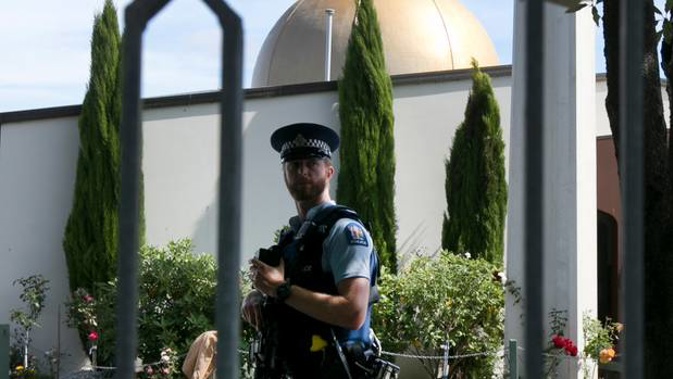
Concerns about white supremacists, Nazis and racists in general have been reported to the NZ Security Intelligence Service in much greater numbers since the March 15 terrorist attack.
The heads of spy agencies the SIS and the Government Communications Security Bureau appeared before Parliament's intelligence and security committee this evening.
The SIS was one of the agencies that came under scrutiny after the March 15 attack, with questions about whether its radar had been too focused on potential Muslim threats and not enough on extreme right-wing groups.
SIS Director-General Rebecca Kitteridge told the committee that the attack had made the public more aware of certain activities and views.
"That has led to a significant increase in the information we have received from the public ... Between March 15 and the end of June 2019, NZSIS received 455 pieces of lead information, a significant number of which were direct from the public.
"Unsurprisingly, many of these pieces of lead information concerned people who had expressed racist, Nazi, identitarian or white supremacist views."
/arc-anglerfish-syd-prod-nzme.s3.amazonaws.com/public/3UVDCRMNTFA3VMY4M3NBHUNNRE.jpg)
SIS director-general Rebecca Kitteridge during her appearance before the security and intelligence committee. Photo / Mark Mitchell
She added that terrorist groups, including Isis, had been severely degraded but not eliminated, while Al Qaeda also remained active.
She supported the ongoing Royal Commission of Inquiry into the attack, which limited what she could tell the committee.
"We must learn from this horrific event - and we will," she told the committee.
New Zealand's spy agencies launched in 24/7 mode immediately after the March 15 terrorist attack last year. Photo / Alan Gibson
Immediately after the March 15 attack, she said the SIS launched a 24/7 response with three aims.
- getting a full picture of the alleged attacker, including whether other attacks were planned
- reviewing what the SIS knew about extreme right-wing groups to detect potential copycat attacks
- detecting any suggestion of a revenge attack either in New Zealand or against New Zealand interests offshore
"It is fair to say that this was a global intelligence response," Kitteridge told the committee.
GCSB Director-General Andrew Hampton said the GCSB also went into 24/7 mode, helping mainly through technical capabilities and access to foreign intelligence.
"Like Rebecca, I absolutely support the Royal Commission of Inquiry," Hampton told the committee.
"It is vital that we know if there is anything that could have been done to prevent the attacks, and identify lessons to be learned for the future."
He added that the National Cyber Security Centre had recorded 339 cyber security incidents in the 12 months to June 2019 - slightly lower than the previous year.
"Thirty nine per cent of these incidents had links to state-sponsored actors, which are generally more sophisticated than criminal or non-state activity given the greater resources and motivations of states."
He said more incidents were detected after they happened, meaning there was more opportunity to cause harm.
Kitteridge also said that foreign state actors continued to make "persistent" efforts to access sensitive government and commercial information.
"They have also made attempts to covertly influence individuals and institutions in ways that have a negative impact on our economy and wellbeing."
Hampton said the GCSB would work with the Electoral Commission this year to protect its systems for the election.
He said the GCSB had also advised political parties on how to protect themselves from cyber threats.
"During the election period, we will be responsive to reporting from our security partners, political parties or the public regarding suggestions of state-sponsored disinformation campaigns."
Take your Radio, Podcasts and Music with you









